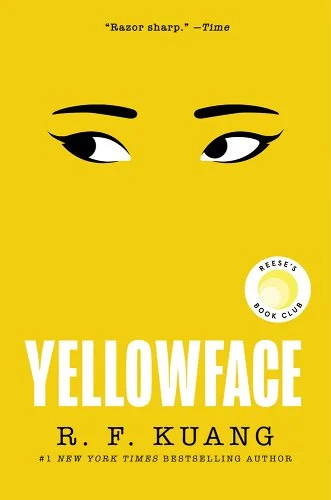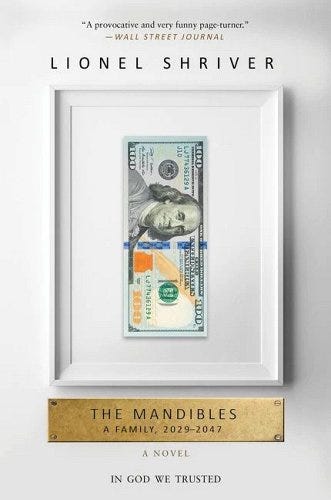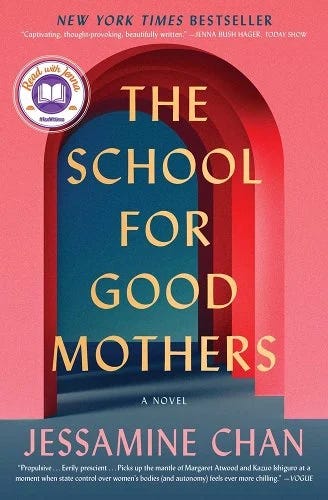Normally, I wouldn’t write about a book I didn’t like. There are so many extraordinary books that don’t get enough—if any—attention. But while I was reading Long Island Compromise by Taffy Brodesser-Akner, I was listening to The Arsonists’ City, by Hala Alyan, and the simultaneous juxtaposition of these two family stories made me think a lot about why some novels become bestsellers and novels that are in my opinion more insightful, compassionate, and better put together do not.
Long Island Compromise starts off like a thriller: wealthy Jewish businessman, Carl Fletcher, is kidnapped as he leaves for the office one morning. He’s held for several days, until his wife, Ruth, successfully delivers the $250,000 ransom to a baggage claim carousel at the airport. Bernard, her four-year-old son, is with her.
Carl returns a wreck. “This happened to your body,” his mother Phyllis tells him again and again. “This did not happen to you.” A good son, he obeys her—and suffers from PTSD for the rest of his life, skewing what his family might have been.
The novel jumps forty years from there, offering several hundred pages of backstory in which the aftereffects of the kidnapping on each of his three children is described in great detail. The trouble is, it’s told. Not revealed.
And then and then and then and then.
Woven throughout, we get the background stories of Carl’s wife and his mother Phyllis. We learn about the Fletcher patriarch’s harrowing escape from Nazi Germany and how he became mindboggling wealthy because he’d been given the chemical formula for what turned out to be Styrofoam from a fellow refugee who didn’t make it.
Eventually, we get to what I guess is the point of the novel: What happens when a fabulously wealthy family comes together in facing the possibility of not being so fabulously wealthy anymore?
There’s so much here that should have been compelling.
But it’s just not.
On the other hand, The Arsonists’ City similarly presents the story of a family whose lives have been radically shaped by traumatic events that made me care deeply about each person. Idris, Lebanese, fell in love with Mazna, Syrian, who had no intention of marrying him until tragedy intervened. They emigrated to the U.S. in their twenties, raised their family in California. Now, their marriage is prickly and their three children are scattered around the world, like the Fletcher children, alienated from one another.
Tensions run high when Idris insists they gather in Beirut to sell his late father’s house and to plan a memorial for him. Slowly, slowly, (deliciously) we learn the story of Idris and Mazna and how the events that occurred during their courtship shaped their marriage and family life.
Oh, the secrets! (And the lies!)
Not to mention how the book brings Syria and Lebanon’s legacy of war alive.
The Arsonists’ City moves fluidly back and forth in time, giving readers what they need to know at the moment it’s happening, enriched by events and insights from the past—as opposed to Long Island Compromise’s often boring building blocks of information.
Its characters are complex human beings fully of mystery, while the characters in Long Island Compromise lack mystery and might even be considered stereotypical.
Okay. I get that Long Island Compromise is a satire; The Arsonists’ City is not.
But I’ve read many satires over the years in which some truth at the center revealed—or, if not revealed, seen in a whole different way—left me feeling like I understood the world more deeply. Yellowface, by R.F. Kuang (which I wrote about here),
The Mandibles, by Lionel Shriver,
The School for Good Mothers, by Jessamine Khan
are a few of the more recent ones.
I just didn’t feel that way about Long Island Compromise.
The novel is hilarious at times. The Hadassah Bowling League, for example. And Brodesser-Akner is genius at dialogue.
Maybe I’d have liked it better if I hadn’t been listening to The Arsonists’ City at the same time, a book that reminded me why I read.
And I should say that I discussed the book with fellow writers on the Radio Free Book Club Podcast the other day. One agreed with me. The other two liked it a lot.
As did most reviewers.
Still. As the book’s narrator observed at the end, “No growth, no revelation. But what are you going to do? That’s how rich people are.”
I already knew that.
I’d have liked some insight into why.









Thanks, Mary.
I agree. Such rich possibilities missed. Also, it didn't help that the opening sets you up for a thriller but doesn't pay off at all in that regard.